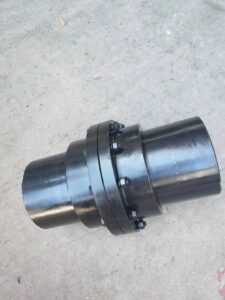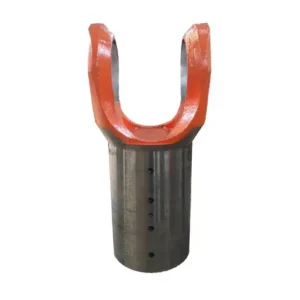Forged Couplings
What are Couplings?
A coupling is a mechanical device used to connect two shafts together at their ends for the purpose of transmitting power. The primary function of a coupling is to join two pieces of rotating equipment while allowing for some degree of misalignment, end movement, or both. They are essential components in a vast array of machinery, from simple motors and pumps to complex industrial systems.

What are Forged Couplings?
Forged couplings are couplings manufactured through the industrial process of forging. This involves shaping metal using localized compressive forces, typically delivered by a hammer or press. The forging process aligns the grain structure of the metal, creating a continuous flow that follows the general shape of the coupling. This results in a component that is significantly stronger and more reliable than one made through casting or machining from a raw bar stock.
Key Industries that Rely on Forged Couplings
Due to their superior mechanical properties, forged couplings are the preferred choice in industries where failure is not an option. These include:
Oil and Gas: Used in drilling rigs, pipelines, pumps, and compressors where they withstand high pressures, shock loads, and corrosive environments.
Power Generation: Critical in turbines, generators, and heavy-duty pumps within nuclear, thermal, and hydroelectric power plants.
Mining and Mineral Processing: Essential for crushers, conveyors, and grinding mills that operate under extreme abrasion and heavy loads.
Marine and Shipbuilding: Used in propulsion systems, steering gears, and deck machinery exposed to the harsh, corrosive sea environment.
Heavy Machinery and Construction: Found in excavators, cranes, and other equipment that experiences high-impact and variable loading conditions.
The Key Benefits of Forging: Why Choose Forged Couplings?
Choosing a forged coupling over other types provides numerous tangible benefits:
Superior Strength and Durability: The forging process refines the grain structure of the metal, making it denser and free from porosity, inclusions, and other defects common in castings. This results in exceptional strength-to-weight ratio and impact toughness.
Enhanced Fatigue Resistance: Forged components can withstand repeated high-stress loading cycles without cracking, making them ideal for applications with constant vibration or variable torque.
Greater Reliability and Safety: The structural integrity of a forged coupling significantly reduces the risk of sudden, catastrophic failure, ensuring operational safety and protecting downstream equipment.
Excellent Wear Resistance: The dense grain structure provides better resistance to abrasion and wear, extending the service life of the coupling even in harsh conditions.

Why Choose Forged Over Other Methods?
While cast or machined couplings might be suitable for some light-duty applications, forging is the definitive choice for high-performance needs. Castings can have hidden internal voids or sand inclusions that weaken the part. Components machined from bar stock can have grain flow that is cut off, creating potential weak points. Forging eliminates these risks, creating a part that is inherently stronger and more reliable from its core.
